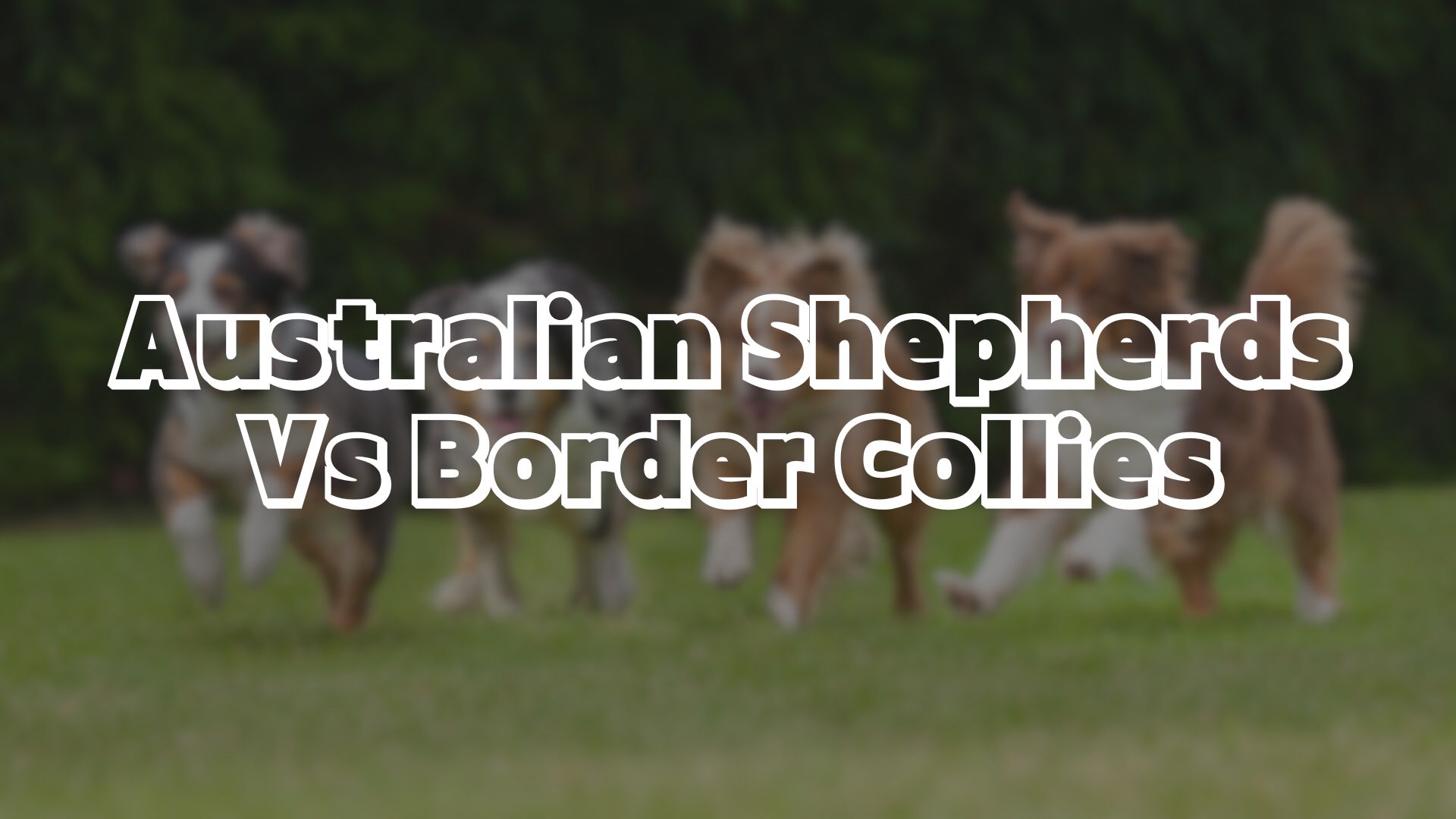Goldendoodles are a cross between Poodles and Golden Retrievers, known for being playful and affectionate with hypoallergenic coats. Poodles, originating from Germany, are intelligent, friendly dogs requiring mental stimulation. Standard Poodles tend to be aloof, while Goldendoodles are goofy and highly dependent, weighing between 50 to 90 pounds. Poodles come in various solid colors like black and white, while Goldendoodles sport cream to golden coats that vary from wavy to curly. If you’re interested in learning more about their differences in origin, characteristics, and cost, continue exploring the details.
Poodles vs. Goldendoodles: Origins
In comparing the origins of Poodles and Goldendoodles, it is essential to understand the distinct breeding histories that have shaped these two canine breeds.
Standard Poodles, originating in Germany, were initially bred as hunting dogs, known for their intelligence, agility, and retrieving skills. On the other hand, Goldendoodles are a hybrid breed resulting from the intentional crossbreeding of Standard Poodles and Golden Retrievers. This intentional mix aimed to combine the Poodle’s hypoallergenic coat and intelligence with the Golden Retriever’s friendly and affectionate nature.
Standard Poodles have a long history dating back to the 19th century, primarily serving as water retrievers. In contrast, Goldendoodles gained popularity in the 1990s and 2000s for their hypoallergenic qualities and fun-loving personalities.
Understanding these distinct breeding backgrounds provides insights into the unique characteristics and traits exhibited by Poodles and Goldendoodles today.
Poodle
Characterized by their intelligence, friendly demeanor, and eagerness to please, Poodles are highly regarded for their versatile abilities as companion dogs. Originally bred as hunting dogs, Poodles are known for their high prey drive and require mental stimulation to prevent destructive behavior. Poodles are intelligent and easy to train, although they can sometimes exhibit stubbornness, necessitating patience during training sessions. Basic obedience training should commence early with Poodle puppies, and consistency in training is key to their development.
In terms of health, Poodles are prone to conditions like epilepsy and hip dysplasia, emphasizing the importance of regular vet checkups, a balanced diet, and sufficient exercise. Similarly, Goldendoodles, a mix of Poodles and Golden Retrievers, may also face health issues like atopic dermatitis, highlighting the need for regular veterinary care from a young age.
Standard Poodles are well-suited to homes with fenced yards, while they can adapt to apartment living with regular outdoor exercise. Poodles are generally good with children but may require supervision around younger kids, making them a suitable choice for families seeking a trainable and sociable companion.
Goldendoodle
With a playful and affectionate nature, Goldendoodles are beloved for their unique blend of traits inherited from Standard Poodles and Golden Retrievers. These designer dogs are known for their friendly disposition, intelligence, and hypoallergenic coat. Below is a comparison table highlighting some key characteristics of Goldendoodles:
| Goldendoodles | Characteristics |
|---|---|
| Size | 50-90 pounds |
| Height | 23-24 inches |
| Coat | Creamy to golden tones |
| Temperament | Goofy, needy, good with children and animals, prone to separation anxiety |
| Lifespan | 10-15 years |
Goldendoodles, with their joyful and cuddly nature, make excellent family pets but require adequate exercise, socialization, and grooming to thrive. Their larger size and need for human companionship set them apart from Standard Poodles, making them ideal for active households seeking a loyal and playful canine companion.
Poodles vs. Goldendoodles: Coat Color
Moving from discussing the joyful and cuddly nature of Goldendoodles, the comparison between Poodles and Goldendoodles extends to their distinct coat color variations.
- Poodles:
- Poodles come in a wide range of solid colors such as black, white, apricot, blue, silver, cream, gray, brown, and cafe-au-lait.
- Goldendoodles:
- Goldendoodles typically have coat colors ranging from cream to golden, with variations like apricot, red, and even chocolate.
- Poodles:
- Some Poodles may have a solid coat color, while others can have a mix of two or more colors, such as the Parti Poodle or Phantom Poodle.
- Goldendoodles:
- Goldendoodles can also exhibit parti-coloration, with combinations of white with any other solid color like black, chocolate, or red.
These variations in coat colors add to the visual appeal of both Poodles and Goldendoodles, allowing prospective dog owners to choose a pet that not only fits their lifestyle but also matches their aesthetic preferences.
Poodle
What distinguishes the Poodle breed in terms of its unique characteristics and attributes?
Poodles are renowned for their intelligence, friendliness, and eagerness to please. Originally bred as hunting dogs, Poodles exhibit a high prey drive, requiring supervision around small pets. These dogs thrive on mental stimulation to prevent destructive behaviors and enjoy social interactions with humans.
Poodles are highly intelligent and relatively easy to train, although they can display stubbornness at times, necessitating patience during training sessions. Commencing basic obedience training early with Poodle puppies and maintaining consistent training practices are vital for their development.
When it comes to health, Poodles are susceptible to conditions such as epilepsy and hip dysplasia, emphasizing the importance of regular vet checkups, a balanced diet, and appropriate exercise routines.
Goldendoodle
The Goldendoodle breed is recognized for its unique combination of traits inherited from Standard Poodles and Golden Retrievers.
- Goldendoodles are known for their friendly and outgoing nature, making them excellent family pets.
- This breed is highly intelligent and easy to train, inheriting the Poodle’s smart characteristics.
- Goldendoodles have a playful and affectionate demeanor, reflecting the Golden Retriever’s loving qualities.
- With their hypoallergenic coat, Goldendoodles are suitable for individuals with allergies, a trait they inherit from Poodles.
Goldendoodles are a popular choice for those seeking a mix of intelligence, sociability, and low shedding tendencies. These dogs thrive on human companionship, forming strong bonds with their families. When considering a Goldendoodle, potential owners should be prepared for regular grooming maintenance and ample exercise to keep these energetic pups happy and healthy.
Poodles vs. Goldendoodles: Coat Type
Goldendoodles and Poodles, renowned for their distinct qualities, diverge notably in their coat types, setting the stage for an insightful comparison between these two popular breeds.
Poodles typically have a hypoallergenic coat that sheds minimally, making them suitable for allergy sufferers. Their dense, curly coat requires regular grooming to prevent mats and tangles. Poodles come in various solid colors like white, black, and cream.
On the other hand, Goldendoodles have a coat that is a mix of their Poodle and Golden Retriever heritage. Their coat can vary in texture, ranging from wavy to curly, and they come in shades of cream or golden. Goldendoodles require frequent brushing and grooming to maintain their coat’s health and appearance. Additionally, some Goldendoodles may inherit the Golden Retriever’s tendency to shed, making regular grooming even more crucial.
Understanding these coat differences is vital when considering which breed best suits your lifestyle and grooming preferences.
Poodle
A distinguished breed known for its intelligence, friendly demeanor, and eagerness to please, the Poodle exemplifies a versatile companion in the world of dogs.
- Trainable: Poodles are highly intelligent and easy to train, making them ideal for obedience work and various activities.
- Sociable: Poodles enjoy human interaction and are known for their friendly nature, making them great family pets.
- Maintenance: Poodles have a curly, dense coat that requires regular grooming to prevent mats and tangles.
- Health Considerations: Poodles are prone to certain health conditions like epilepsy and hip dysplasia, necessitating regular vet check-ups and proper care.
Poodles’ adaptability, combined with their affectionate personality and trainability, make them a popular choice for pet owners seeking a loyal and intelligent canine companion. Their need for mental stimulation and regular grooming may require commitment, but the rewards of having a Poodle as a part of the family are priceless.
Goldendoodle
Known for their joyful demeanor and hypoallergenic coat, Goldendoodles are a popular choice among dog enthusiasts seeking a playful and affectionate companion. This hybrid breed, a cross between a Golden Retriever and a Poodle, inherits the intelligence of the Poodle and the friendly nature of the Golden Retriever. Goldendoodles are known for their outgoing and social personalities, making them great family pets. They are often good with children and other animals, although they may experience separation anxiety if left alone for extended periods.
One of the key attractions of Goldendoodles is their low-shedding coat, which is ideal for individuals with allergies. This characteristic, inherited from their Poodle lineage, requires regular grooming to prevent matting and tangling. Goldendoodles come in various sizes, ranging from miniature to standard, and their coat colors can vary from cream to golden tones.
Poodles vs. Goldendoodles: Size
When comparing the sizes of Poodles and Goldendoodles, it becomes evident that there are distinct differences in their physical dimensions.
- Poodles:
- Standard Poodles weigh 40 to 70 pounds and stand 18-20 inches tall.
- Poodles come in a variety of coat colors.
- Goldendoodles:
- Goldendoodles weigh 50 to 90 pounds and stand 23-24 inches tall.
- Goldendoodles have a coat ranging from creamy to golden tones.
These differences in size are significant, with Goldendoodles generally being larger and heavier than Poodles. Female Goldendoodles tend to be smaller than their male counterparts, adding another dimension to the size variations within the Goldendoodle breed.
This contrast in size can play a role in the living space required, exercise needs, and overall handling of the dog, making it an essential factor to consider when choosing between a Poodle and a Goldendoodle.
Poodle
The Poodle breed, known for its intelligence and versatility, has a rich history as a highly trainable and sociable companion. Poodles are highly intelligent dogs that excel in various activities, from obedience training to agility competitions. Here is a comparison table highlighting some key features of the Poodle breed:
| Feature | Description |
|---|---|
| Intelligence | Poodles are ranked as the second most intelligent dog breed. They are quick learners and eager to please. |
| Coat Maintenance | Poodles have a hypoallergenic coat that requires regular grooming to prevent matting and tangling. |
| Size Varieties | Poodles come in three sizes: Standard, Miniature, and Toy, catering to different living situations and preferences. |
Poodles are known for their grace, agility, and playful nature, making them excellent companions for families and individuals alike. Their hypoallergenic coat and minimal shedding also make them a popular choice for allergy sufferers. With their alertness and friendly demeanor, Poodles continue to be a beloved breed among dog enthusiasts.
Goldendoodle
Moving from the discussion on the Poodle breed’s intelligence and versatility, the Goldendoodle emerges as a popular hybrid known for its unique combination of traits and characteristics. The Goldendoodle breed offers a blend of the Poodle’s intelligence and the Golden Retriever’s friendly nature, making them an ideal choice for many households.
Here are some key points to consider about Goldendoodles:
- Goldendoodles are a mix of Standard Poodle and Golden Retriever, resulting in an active and outgoing temperament.
- They require high exercise and training needs, taking years to mature fully.
- Goldendoodles are more prone to destructive behavior compared to Poodles, emphasizing the importance of proper training and socialization.
- Their hypoallergenic coat and fun-loving nature have contributed to their popularity since the 1990s and 2000s.
Goldendoodles can be a great fit for families seeking a lively and affectionate companion with a playful disposition.
Poodles vs. Goldendoodles: Overall Temperament
Comparing the overall temperament of Poodles and Goldendoodles reveals distinct characteristics that influence their suitability as companion animals. Standard Poodles tend to be aloof, proud, and independent, displaying a reserved demeanor and not always seeking constant affection.
In contrast, Goldendoodles are known for their goofy, needy, and highly dependent nature, often forming strong bonds with their human companions. Goldendoodles are fun-loving, cuddly, and generally good with children and other animals, but they may struggle with separation anxiety due to their strong attachment to their owners.
Standard Poodles, on the other hand, exhibit a more independent streak and may not be as overtly affectionate. When considering the temperament of these breeds, potential owners should assess their own lifestyle and preferences to determine which traits align best with their expectations and living situation.
Ultimately, whether one leans towards the more reserved and independent nature of the Poodle or the affectionate and dependent demeanor of the Goldendoodle, both breeds offer unique companionship qualities.
Poodle
When delving into the characteristics of the Poodle breed, one cannot overlook its intelligence and adaptability as key defining traits. Poodles are renowned for their sharp minds and ability to learn quickly, making them highly trainable companions.
Here are some essential aspects to consider about Poodles:
- Intelligence: Poodles consistently rank among the most intelligent dog breeds, showcasing problem-solving abilities and a keen understanding of commands.
- Adaptability: Poodles are versatile dogs that can thrive in various environments, whether it be a spacious home with a yard or a compact apartment with regular outdoor outings.
- Energy Levels: Despite their elegant appearance, Poodles have a moderate to high energy level, requiring daily exercise and mental stimulation to prevent boredom and potential behavioral issues.
- Social Nature: Poodles are generally sociable and enjoy human interaction, making them suitable for families seeking a loyal and affectionate pet.
Goldendoodle
In exploring the breed characteristics and traits of the Goldendoodle, it becomes evident that their lineage and temperament play significant roles in shaping their suitability as family pets. A cross between a Standard Poodle and a Golden Retriever, Goldendoodles exhibit a fun-loving, cuddly nature that makes them excellent companions for families.
Their goofy and needy temperament results in a high level of dependency on human interaction, making them great with children and other animals. However, this attachment can also lead to separation anxiety if left alone for extended periods. Goldendoodles require regular exercise, mental stimulation, and grooming to thrive.
Their coat, ranging from creamy to golden tones, demands daily combing and monthly washing. Despite their potential for mischief and anxious behavior, Goldendoodles’ affectionate and sociable demeanor makes them charming additions to households willing to invest time and effort into their care and well-being.
Prices
The cost of acquiring a Goldendoodle or a Standard Poodle can vary significantly based on factors such as breed lineage, age, and breeder reputation. When considering the prices of these breeds, it’s essential to factor in the initial purchase cost along with potential lifetime expenses. Here are some key points to consider:
- Standard Poodles generally have a higher initial purchase price ranging from $1,000 to $4,000 due to their pedigree and popularity.
- Goldendoodles, on the other hand, are typically less expensive, with prices ranging from $500 to $2,000 for a puppy, making them a more budget-friendly option.
Both breeds incur similar lifetime costs for grooming, feeding, and veterinary care, so ongoing expenses should also be taken into account.
It’s crucial to research and choose a reputable breeder to ensure the health and well-being of your new furry companion, regardless of the breed you decide to bring home.
Conclusion
In conclusion, the comparison between Goldendoodles and Poodles reveals distinct differences in origins, coat colors, and overall temperaments.
Potential pet owners should consider factors such as training requirements, grooming needs, and behavioral tendencies when deciding between these breeds.
By carefully weighing these characteristics, individuals can make an informed choice that aligns with their lifestyle and preferences as responsible pet parents.




